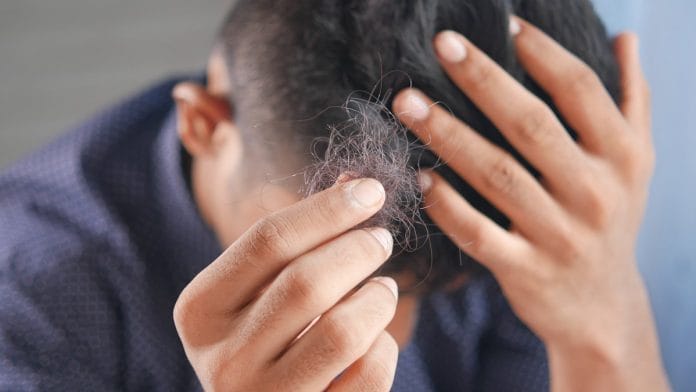This week I’ve had many patients come to see me with their hair in disarray, thanks to the rainy weather. This prompted me to discuss hair care for navigating the Indian climate.
The diverse weather conditions in India pose unique challenges for maintaining healthy hair. From the humid monsoons to the scorching summers and dry winters, each season brings its own set of hair care issues.
Read on to learn about effective hair care hacks tailored to our climate, covering everything from frizz control to dandruff prevention.
Hair care and Indian climate
Different weather conditions in India significantly affect hair health:
- Monsoons: The high humidity during the monsoons increases hair fall. The scalp becomes a breeding ground for yeast, leading to flaky dandruff. Chemical treatments like hair colouring can exacerbate these issues, causing more irritation and itching due to the compromised skin barrier.
- Summers: The intense heat and sweat in summers make hair greasy and prone to scalp infections and hair fall. The texture of the hair might change, becoming frizzier and more unmanageable.
- Winters: The cold weather can be beneficial for those with oily scalps as they sweat less. However, the dry air can cause the scalp to become flaky and dandruff-prone.
Additionally, India’s overall dusty environment means the scalp gets dirty faster, leading to increased bacterial growth and a higher chance of infections. See, hair is essentially dead tissue and only serves an aesthetic purpose, but yet it can harbour infections, especially in individuals with compromised immunity, such as diabetics.
Also read: Don’t go only natural or chemical on hair loss treatment. Take a combined approach
Frizz fix
- Use shampoos and conditioners that add moisture to your hair, featuring ingredients like argan oil, shea butter, and glycerin.
- After washing, apply a leave-in conditioner or an anti-frizz serum to lock in moisture and smooth frizz. Lightweight oils like argan oil or jojoba oil can also be beneficial.
- Minimise heat-based styling with tools such as blow dryers, flat irons, and curling wands, as they strip moisture from the hair, making it more prone to frizz. Always apply a heat protectant spray before styling.
- Regular towels can cause friction and frizz. Instead, use a microfiber towel or a soft cotton t-shirt to gently blot excess water from your hair.
- Dilute apple cider vinegar (ACV) with water in a 1:1 ratio. After shampooing, pour the mixture over your scalp and hair, let it sit for a few minutes, and then rinse with water. ACV helps balance the scalp’s pH and smoothens the hair cuticle.
- Mix lemon juice with water and use it as a final rinse after shampooing. It can help control frizz and add shine to your hair.
Dandruff prevention
- Use shampoos with active ingredients like ketoconazole, zinc pyrithione, or salicylic acid to combat dandruff.
- Known for its antifungal properties, tea tree oil can help reduce dandruff. Take a few drops of tea tree oil, add it to your regular shampoo or oil and massage it into your scalp.
Home remedies
- Use a 2 per cent cetirizine lotion diluted with water (1:5 ratio). Apply it to your scalp and leave it on for 15-20 minutes before washing off. For adults, it can be applied overnight and rinsed off in the morning.
- Apply fresh aloe vera gel to your scalp, leave it on for about 30 minutes, and then rinse. Aloe vera has anti-inflammatory and soothing properties that can help alleviate dandruff.
Also read: Natural products, home remedies benefit Indian skin. Remember, they’re not a cure-all
Tips and hacks for hair care
- Avoid tight buns, ponytails, and braids, which can cause traction alopecia (hair loss due to pulling). Go for loose hairstyles to reduce stress on your hair.
- Proper washing techniques: Use a bucket or a hand shower to wash your hair, as high-pressure showers can increase hair fall. Ensure the water is clean and not chemically treated.
- Ensure your diet is rich in essential nutrients like proteins, vitamins (especially A, B, C, and E), and minerals (such as iron and zinc). Additionally, regular exercise improves blood circulation, which promotes healthy hair growth.
- Mix castor oil with a few drops of rosemary oil and massage it into your scalp. This combination promotes hair growth and strengthens hair follicles.
- While results can vary, some people find that applying orange juice to the scalp helps with hair growth due to its sulphur content.
- For added bounce and shine, use fresh, not flat beer as a final rinse after shampooing. Allow it to sit for a few minutes, then rinse with water.
- Tie your hair loosely before bed to prevent tangling and breakage. If you’ve applied any hair treatment or oil, cover your pillow with a towel or wear a shower cap to protect your skin and pillowcase.
As a dermatologist with over 13 years of experience, I would always advise you to keep a regular seasonal check on your hair and observe how different weather conditions affect your hair. Armed with this knowledge, you can and should seek the advice of your trusted dermatologist who can tailor your hair care routine to keep your locks looking their best year-round. Remember, healthy hair reflects a healthy lifestyle.
Dr Deepali Bhardwaj is a Consultant Dermatologist, Max Hospital, Saket. She is also an anti-allergy specialist, laser surgeon and internationally trained aesthetician. She tweets @dermatdoc. Views are personal.
(Edited by Humra Laeeq)






